An experimental guide to all the lessons I learned on the road in the past three decades – some of them the hard way.
Are you sometimes wondering if the way you travel is the right way? Have you been in situations abroad where you thought “Hey, this could have gone a bit smoother, eh?”.
Then you are in the right place! I compiled a list of the 10 most important lessons I learned on the road in the past thirty-odd years.
I believe humans are a migratory species in our hearts. We want to travel. We want to explore what’s behind that corner. But while we feel some things in our bones, we need to learn other lessons the hard way. This list is not meant to be a travel canon, but rather as a source of inspiration to help you travel better and longer.
So, let’s get started!
PS: I also wrote a detailed guide about 30 travel planning mistakes you need to avoid. You might want to check that out as well, as it gives you some hands-on advice, rather than the more general insights in this travel guide.
1. Fear of missing out (relax, don’t do it)

One of the biggest lessons for me personally was letting go of tight itineraries. I’m a passionate planer and if I go visit a country I want to see it all. I want to explore every niche and cranny and when I hear about this secret waterfall from a local I want to explore it. My dad (from whom I inherited my travel bug) always tells me: Try to see everything in a country, because you’ll tell yourself you’ll return, but this might not happen and if it does, it’s going to be in 20 years.
In a way he is right. The problem is, you don’t have infinite amounts of time and probably only a limited amount of money as well. So, there really is no way to see it all, most often not even the important highlights. Now, you can get up very early and pack your days full of adventures and tourist highlights. But, even then things often won’t work out.
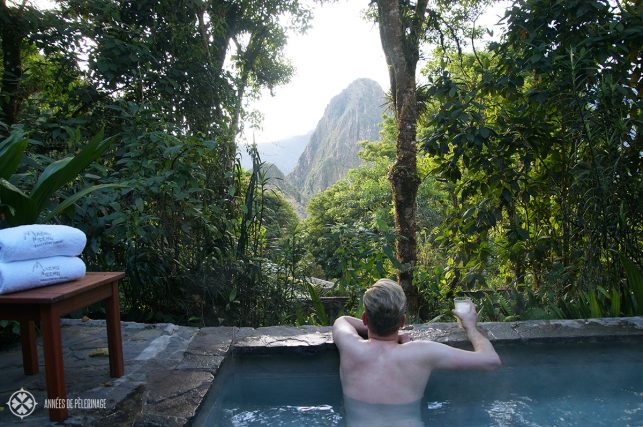
And that is okay: I’m fairly positive that you’ll learn just as much about Peru by staying three days in Machu Picchu as you would seeing Cusco, Ollantaytambo and the famous Inca citadel in the same amount time.
Friends always can’t believe me when I say, that sitting down in a café and drinking a coffee, smoking a cigarette (I don’t smoke) and having a dessert means pure stress for me! It’s 30 minutes of thinking which meaningful things I could have done with that same time instead of wasting it away and even paying money to be idle. It took quite some time to get used to the concept of celebrating ennui and its benefit!
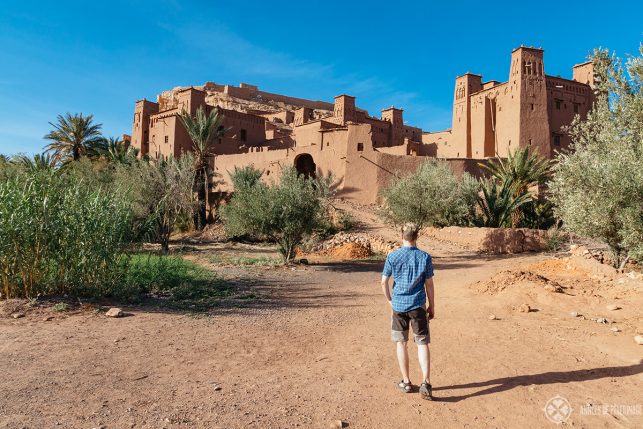
Taking things slower, having time to appreciate a certain place, is just as important as having the time to process all that you have seen. Before each trip, you really should take 10 minutes looking at your itinerary, and ask yourself: When will I have a couple of hours to relax. Will your trip really be less amazing if you left out this place? A perfect trip is NOT defined by ticking of many items on a list, but rather when it makes sense and is well-paced.
I am currently planning a trip to Sri Lanka. And everybody told me how I must see Ela and the tea paddies there. Yet, it would mean that I’d have to rush through the country and stay less than 3 days in one place. In the end, I came to the conclusion that I really don’t want to change accommodation every day and if I would the whole trip would suffer so much more than not seeing one place.
A trip to a new country should be inspiring, not exhausting!
PS: Some trips will be exhausting by their very nature. My trip to Spitsbergen was no walk in the park. A week at temperatures below -30° Celsius probably never will be. But I planed it in a way that it is not unnecessarily exhausting.
2. Reign in your travel passion
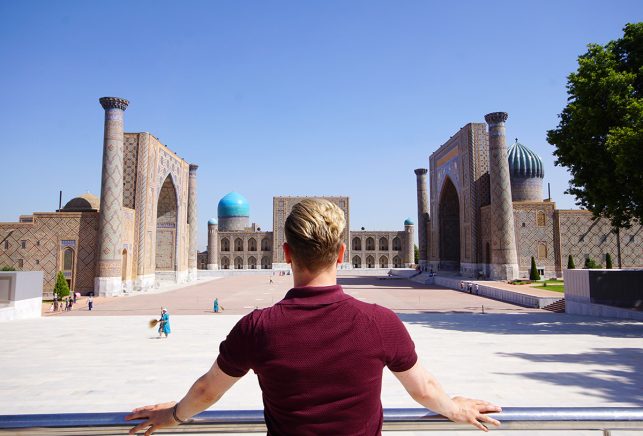
Who doesn’t know this feeling? You just returned from an awesome trip, you are still all euphoria and then you meet up with your friends for the first time after quite a long time. And naturally, you want to tell them all about your holidays. Only you end up being a bit too ecstatic and elaborated.
Please remember: Most people live in a whole different reality. They got a house, two kids, a dog, and maybe a grandma to take care of. They spent the last 4 weeks fighting their way through the myriads hazards of their office job. If you drone on about your indefinite trip through Southeast Asia and how amazing it was, you are not exactly on the right road to being Prince Charming.
Travel is like a drug. But for those staying at home, adventurous stories will be a bitter pill to swallow.
If they are your friends, relatives or even co-workers, they are probably very interested in your story. But refrain from preaching gospel AND, most importantly, leave room for their views and their stories as well. Maybe their summer wasn’t filled with adventures in the jungle, but I’m pretty sure they will lighten up if you give them your ear as well.
3. There is no right way to travel
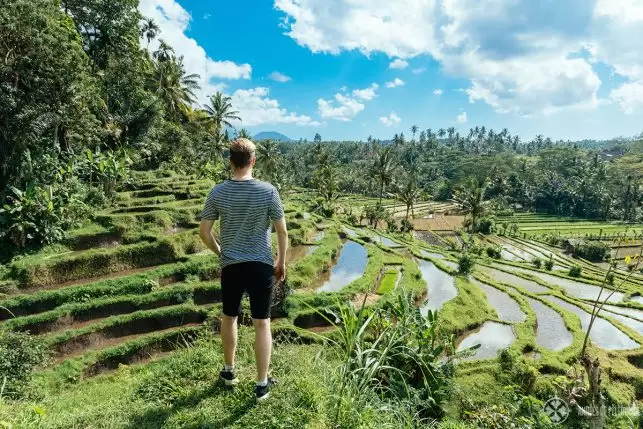
These days it sometimes feels like every millennial who ever booked a trip to Thailand or Bali knows everything about travel there ever was to know. Typically these people always talk about “doing countries”. “Yeah, I’ve done Italy”. Usually a lengthy discussion about the best way to “do” a country follows, but you are totally allowed to ignore the rambling.
Travel bloggers are also prone to giving out advice on the best way to travel as well. But harken: There really is no general right way to travel. Reading the blogs of my esteemed fellow travel bloggers makes it seem that if you don’t backpack, you are doing something wrong. House stays, couch surfing, and hostel, packing light and solo (female) travel is also very high on the digital nomad list – or alternatively, the insanely beautiful power yoga couple who produce awe-inspiring Instagram shots with seemingly no effort at all.
Now here comes the important bit.
Travel is not about following in somebody’s worn out footsteps, but about expanding your very Own horizon.
If you like doing cruises, if you love traveling with your family or if you enjoy staying in an all-inclusive resort on the beach for two weeks – all this is no problem at all. YOU know best what you need, not somebody else. And quite frankly, most people are no digital nomads so it seems somewhat weird to take their advice as gospel .;-)
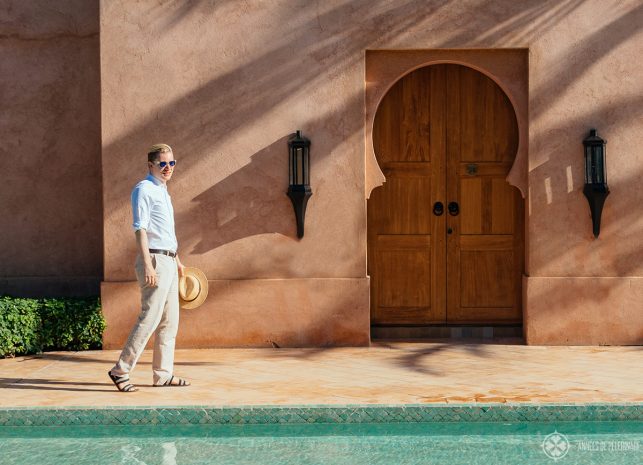
If somebody tells you that street food, hostels, “going local” and only a plan for tomorrow (if that) are the best way to explore a country and you may tell them: I’m glad you found the perfect way to still your wanderlust. I follow a different road. AND THAT IS FINE!
We are not all alike. Find your own way and what suits you best. Try luxury hotels, try backpacking, and try that all-inclusive club vacations, try cruising, mix it all up – you’ll notice very soon what’s best for you (But it’s somewhat important to try everything at least once with an open mind).
PS: I know it’s somewhat ironic writing this list and telling you not to strictly adhere to other people’s advice on how to travel at the same time. So, rather see it as inspiration from an experienced traveler, and ignore whatever doesn’t tune with you.
4. Be frugal
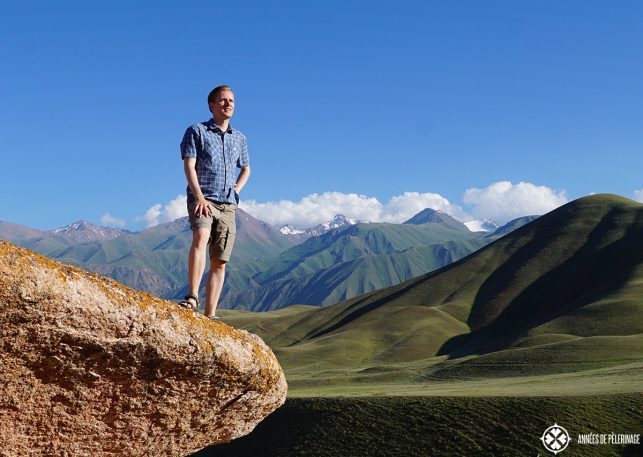
In most situations, counting your dollars is never a mistake. (Please don’t stick to this advice when looking for an engagement ring for the love of your life, ok? :P) Being frugal is nothing to be ashamed of, as long as it’s not an obsession that governs your whole life. Travel is a multi-billion-dollar industry with a gigantic marketing apparatus constantly trying to convince you of unnecessary things you maybe don’t need!
Now you might say, but Norman, you are constantly sleeping in these super-expensive luxury hotels. How is anything you do frugal and why this advise? Well, what I mean is: For the perfect holidays you really don’t need the best camera on the market, you don’t need a Louis Vuitton suitcase, and if you don’t have those Gucci sunglasses your trip will still be as good.
In the past years, I have seen so many people investing insane amounts of money into their hiking gear or expensive bikes that weight 500 grams less (I always tell them that losing 1kilo of weight is cheaper and better for them :P). High-end professional cameras or drones are also quite popular! Expensive suitcases are also one perfect example – you don’t need it except you travel like 10 times a year!
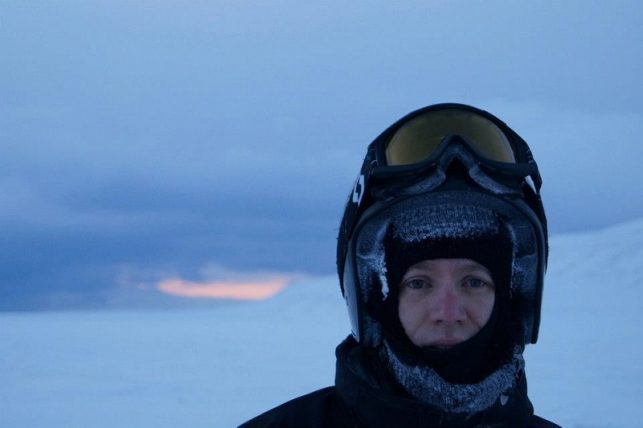
I promise you one thing: Most people don’t need all that gear to have the perfect vacations, and 90% won’t use it to its full capacity either. If you are solo trecking to the North Pole, you (probably) won’t succeed without insanely expensive expedition gear. But if you are just hiking to a waterfall in Iceland, some normal trainers will do perfectly well.
In my youth (I grew up in the German Alps), we climbed all these mountains without special outdoor clothes. Today, almost everyone I meet at the top wears gear worth 2,000$ or more like they are trying to scale Mount Everest. Yet, the view from the top is still the same. Big promise!
If you got the spare money, then why not – most of that gear really IS better (if you know how to use it). But it’s often not needed and there is equally no need to go on a shopping binge before a trip! I know a new country can be quite daunting and you want your trip to be perfect, but with a little bit of research, you will soon realize that a lot of the stuff you already have will be perfectly fine.
Don’t throw Money at your insecurities, deal with them.
5. Plan ahead & skip it all
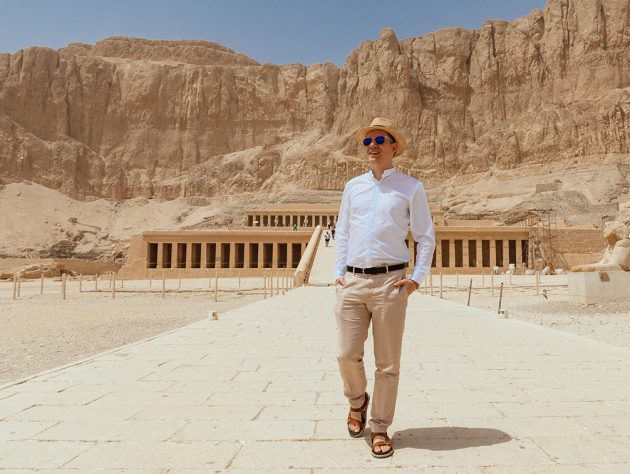
I have said it before and I will say it again as often as it takes: Always plan ahead! I find it quite astounding how often I hear stories from people who just book flights, maybe the very first hotel and the decision on a daily basis what to do next.
Listen, I’m not the one to tell you to stop. I guess there is a certain allure in freedom and it might help you escape from the rigid strictures of your corporate job. I’m only recommending you to have a plan.
See, museums or national parks can be closed. Festivals are not held every day, and certain national holidays (which can last weeks or months in case of things like Ramadan, etc) might best be researched in advance as well. If you are out for wildlife, then knowing about seasonal migrations might not be a bad idea, and having had a glance at a weather diagram is usually a good approach as well.
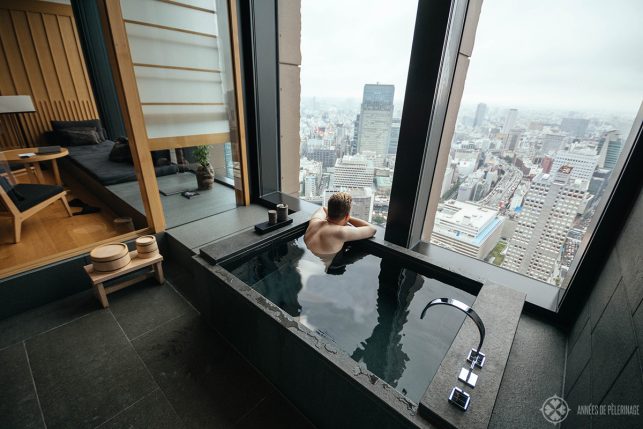
Also, even if you don’t pre-book accommodation, it is still smart to have a general plan of the hotels in a certain area. If you find a better one or one that appeals to you more, go ahead. But knowing a place where you could stay if everything else fails can’t hurt, can it? (Still, I do recommend booking online, as I have not seen a single hotel yet that was cheaper to book at the receptions. You’ll always pay list price, which is designed to have a large puffer for discounts.)
My itineraries are always very, very detailed. You’ll even find some of them on this blog (here is a very detailed downloadable Egypt itinerary for example). But having a rough (or detailed) itinerary doesn’t mean you can’t throw it in the garbage the second you walk past this amazing bar, festival or beach. Sometimes I plan to go hiking on the weekends when I’m at home. And then it starts raining, and I rather read a good book.
Itineraries are meant to help you prepare for the unexpected and not as a corset you can’t escape. So, please listen when I say:
Traveling without a plan doesn’t increase your chances of finding the secret gems of a country. It decreases them.
6. You’ve got time, baby

A gap year (or sometimes even gap years) sounds like the perfect thing to do in your twenties. And really, you should consider it, but at no time you should ever believe you can’t travel anymore when you are older. Traveling is no more restricted to your earlier years than going to a classical concert is to your fifties to sixties. Those are just stupid prejudices you need to get rid of sooner than later.
There is no need to see the whole world before you get that annoying 3 on your birthday cake. Actually, I have been following quite some digital nomads over the years, and I couldn’t name a single one who has been traveling non-stop for more than 5 years. At one point they always slow things down or even take a full break from traveling.
Long-term travel is really not sustainable and not even desirable. We (almost) all need a home. But maybe it’s a bit easier for me to say this. I have been constantly traveling all my life. There was not one year, and it has been 37 of them (so far), where I didn’t visit at least 3 countries, often more. So, when I hit 20, there was no big backlog on my bucket list. I just continued what I have been doing and felt comfortable with it.
The sister of my grandma lives in Upstate NY and she is still traveling in her 90ies (even long flights across the pond to Europe). Now, not all of us are as lucky to stay in such formidable health until such a high age, but nothing, except your own mindset, will keep you from traveling all your life. If you try to squeeze it all in a short amount of time, you will soon grow sick of it. Just like listening to a song or a special dish (other than pizza, I could eat pizza every day).
Wanderlust is a mindset not a question of age.
7. Use your common sense & trust your gut

My list of travel achievements is quite impressive: I never lost my luggage, I never had a flight of mine canceled, I never got anything stolen, and I can count the times I got seriously scammed on two fingers. I also never broke a mobile phone, but maybe I shouldn’t push my luck by mentioning all this.
But, am I just lucky? I actually don’t believe it. I’d rather believe there is something about the way I travel that makes me avoid all these situations. I came to think it is a combination of always following a plan and always using my common sense. Half of the scams build on something you actually don’t need in that second, and losing your luggage is so much easier when you book that extra cheap flight with 3 layovers instead of a direct one.
When you follow a stranger in downtown Cairo into his art gallery on a vague promise, you should know that something is amiss. After all, how would you react if this happened in your home town?!
In a different country A friend doesn’t always have to be friendly. And a friendly person isn’t necessarily your friend.
But the important part: Deep down, if you take a minute to think about it, most mishaps are quite predictable. Sometimes you are able to score a ridiculous bargain where you know this must be a mistake. You can still go for it but you should always realize that it opens up the window to mishaps.
Flight fare mistakes are, for example, certainly NO urban myth, but sometimes, when a tour costs half as much as all the others, there is a reason. Either the tour operator won’t show up at all, or your bus will have no a/c, etc.
8. Be respectful
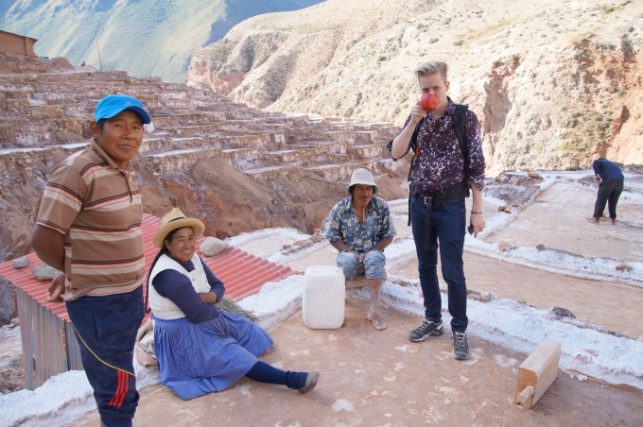
Do you have to wear long pants when visiting a conservative country (say in the middle east)? No, except it’s Ramadan or you are visiting a mosque, you are mostly fine running around in shorts.
But that is only one side of the coin. Let’s start a thought experiment (which I admit is beating a bit on cliches but please bear with me).
How do you think would somebody from a very conservative Christian neighborhood react to three ladies with abaya and niqab (meaning they are fully veiled, face and all), smelling strongly of heavy oriental perfumes, impatiently demanding a favor. And how would that same person react to a white family (blond hair, ironed shirts and all) asking the very same favor in a polite and respectful way? What do you think? Would both be treated in the same way?
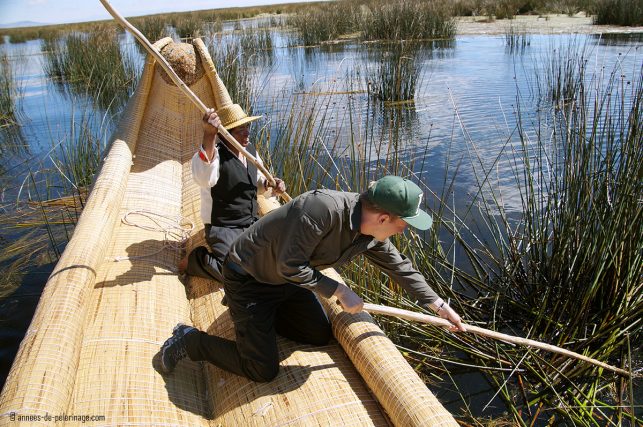
It’s a bit like that when you are abroad. If you don’t trample local customs with your feet you are so much more likely to find helpful and friendly people. And believe me, there are many situations when you will need the help of a potential friend, instead of somebody who hates you the second he or she sets eyes on you.
There will come the day when there are no seats left on a tour or no tables left in a restaurant. A day when you will need the taxi driver to drive extra quickly as you are about to miss your plane. If you don’t act the arrogant western asshole or the crazy rich Asian, I’m fairly certain you will get faster to your goal than throwing around money and/or insults. Ask somebody who works in the service industry, if you are unsure.
“When strangers meet, great allowances should be made for differences in custom and training.”
9. Look behind the scenes & travel ethically
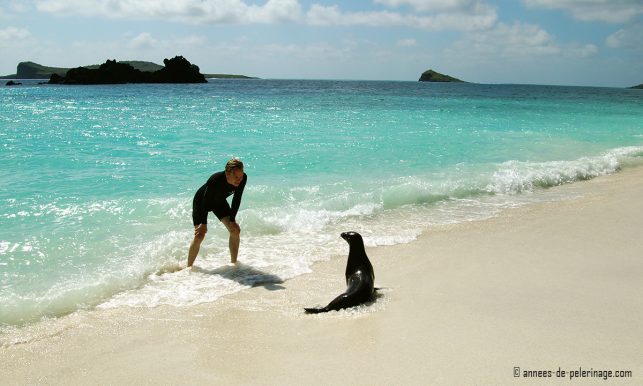
The travel industry is rotten to the core. It is also quite a competitive business. An average cruise ship emits more pollutants in the air per mile than 5 million cars on the same distance. And we are not even talking about the waste they discharge into the ocean.
A lot of people don’t know anything about the way their trips cause harm to our planet. It’s a matter of education. A 5-year-old child doesn’t know that a plastic bottle will take hundreds of years to degrade naturally. But when you return to Bali after 20 years and you suddenly see all the beaches full of plastic waste, you feel guilty for throwing away all those bottles in your teens.
The plastic issue is currently quite popular. A vegan lifestyle is another such trend. Personally, I find most of these trends useless or downright hurtful. They don’t create true relief and rather mitigate the damage (the deforestation of Sumatra for all that coconut oil isn’t exactly the quintessence of causing less suffering). Instead, you should try to look behind the scenes of everything you do.
And in each such situation, you should ask yourself: Is this causing any lasting suffering and what alternatives do I have. Why should you do this? Because you and possibly your children will return to this very same place and they will want to see it in the same condition.
10. Stay on the beaten paths!
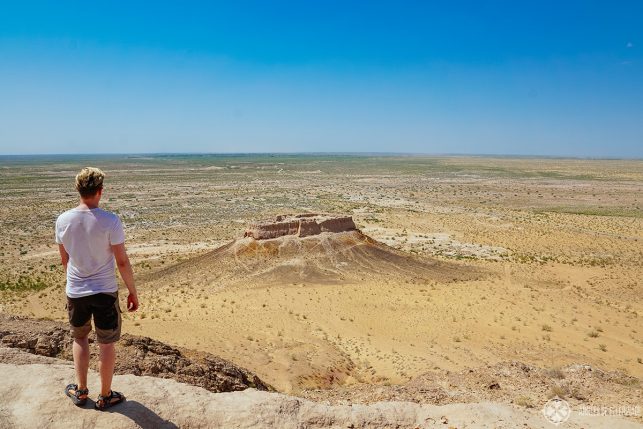
Hidden gems, off the beaten path, last frontier – there are many magical words to entice especially adventurous travelers to spend a fortune. And after a fashion, I’m one of them. I’ve seen so much in my life that I long to explore unchartered territories. I loved my trip to Kyrgyzstan so much more than any trip to the Maldives.
The problem: There are so few last frontiers left. Back in the early 90ies, when I visited the Azores, there was virtually no tourist infrastructure. We had to hitchhike and sleep in guest houses or with local families – now it’s on its way to becoming another Iceland or Venice.
Every time we press the existing boundaries, we condemn another piece of unspoiled nature. At the same time, however, we are doing the aforementioned Venice or Iceland no favor, by offering no alternatives. So, opening up certain destinations for mass tourism, if done slowly, is a good idea to distribute the constant influx of new travelers.
But even then, it is so important to stay on the beaten paths. There is usually a reason why there is a barrier or a sign “don’t feed the animals”. Nature is a delicate thing and you don’t want to come home realizing you helped destroy a part of it. Inadvertently I did it, and probably will do it again – the aftertaste is a horrible one.
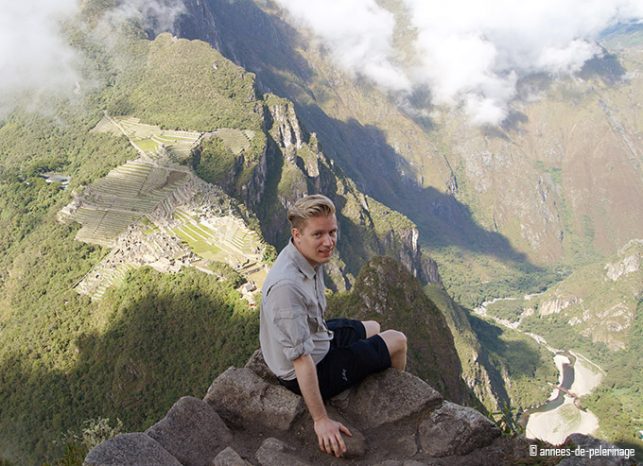
Also, it can be exceedingly dangerous. Ask yourself: is a beautiful picture worth getting yourself in danger. Don’t misunderstand me. I took myself my share of pictures I shouldn’t have done. If everyone is taking pictures with their feet dangling from high cliffs, well, you want one yourself. But there really is no single reason to be so vain. Rather use that very same time to appreciate the scenery, take a deep breath and enjoy the moment!
Likes on Instagram won’t buy you a better life.
So, with this little quote, I’d like to close this list of lessons I learned on the road that will help you travel longer and better. Got something to add to this list? Share them in the comment’s and I’ll add them! Oh, and help me spread the word by sharing this on social media or Pinterest!
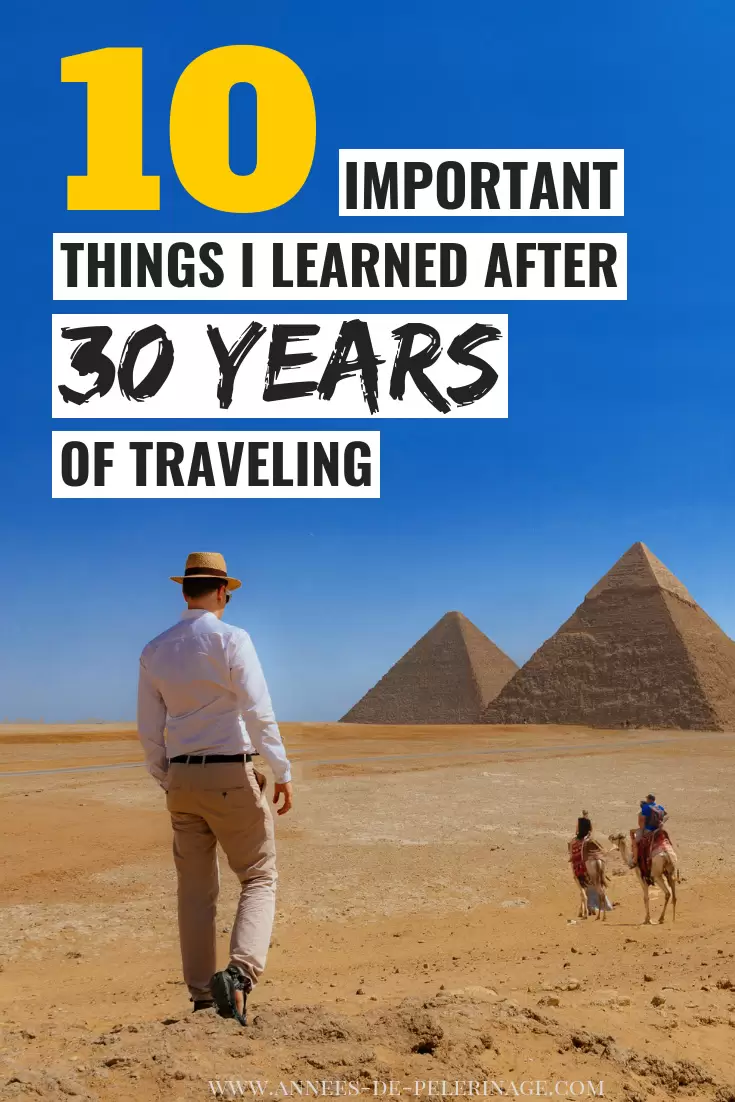


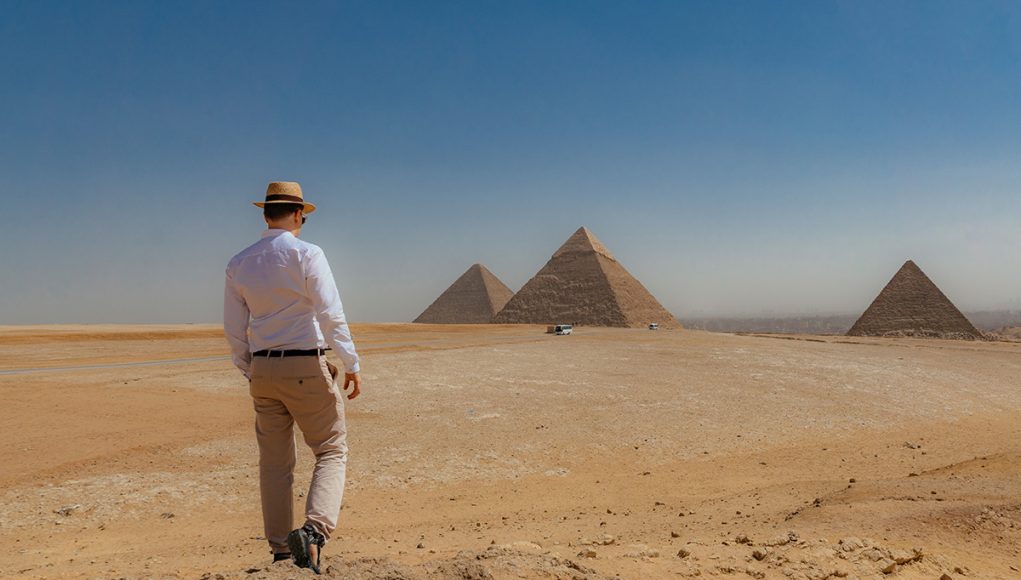
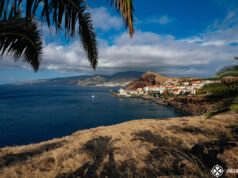



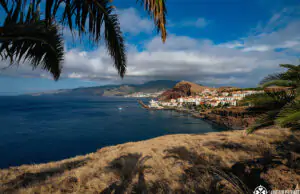
Hi Norman,
this article is really inspiring, I feel the same way! As you say it is easy to feel behind when you see all the millennials reports! My twins are almost 3y old and from when they are born we started to travel even more than before but in a different way. It took me sometimes to let go and understand that I cant maybe see everything anymore but slowing down made me appreciate even more the place we now visit!
Hey Clotilde,
exactly! Maybe the way you travel changes, but travel really shouldn’t be reduced to doing a gap year in Thailand!
I second your observation that “For the perfect holidays you really don’t need the best camera on the market,”
You need a good, but not great, camera to record your trip. We spent two weeks traveling in China with a professional photographer who had $60,000 worth of top of the line Nikon cameras & lenses (he got them free from Nikon in exchange for letting Nikon advertise that he uses Nikon cameras). I had a little $150 digital camera from Costco that fits in my shirt pocket. He asked what my little camera could do. After I told him, he said, “that’s incredible. Nobody other than a professional ethnographer ever needs any more camera than that!”
Depending on how I set it up, my camera holds 400-900 photos on an HD card.
Totally, these days most smartphones shoot better pictures than the first professional digital cameras ;-)
An enjoyable pleasant read, I like how you pleaded your tips advice into a conversation type article. I agree do what you enjoy most. Our next holiday is a walking trip as my wife and I love to walk.
Thanks for writing.
James
Hey James,
oh those can be fun! Too many people take too much motorized transport when it is walking you see the most details.
I love your travel site! It’s my ‘go to’ website when I am planning a trip. Thank you very, very much.
Oh wow Wendy! Thank you so much! Glad I am able to help you so consistently! Happy travelling!
Hi Norman,
I found your travel blog planning a trip to Peru and I found it very interesting and inspiring. Thank you very much for sharing your travel experiences, they are quite helpful and fits quite well with the way I like to travel.
Hey Roberto, glad I could be of help. Enjoy your trip to Peru!
Surprised to read that you love your trip to Kyrgyzstan more than any trip to the Maldives, but to ach his own. Thank you, always, for your interesting and informative articles!
Hey Jamie,
well, the Maldives can be amazing, but they don’t feel like exploring new territory. It’s just that, a nice luxurious holiday. I can enjoy both, but if I had to take my pick, then definitely Kyrgyzstan! But yes, you nailed it: to each his own – this is what the article is actually about :)
Hey Norman,
Thanks for the article! I’m planning a trip to Egypt in 2020 … love the advice.
Jan
I’m a strong believer in taking time to relax on a trip because if you’re just going to be exhausted when you’re exploring then that kinda takes the enjoyment out of travelling. Loved reading this!
Hey there,
glad you liked it! :) and yes, relaxing is soo important
Lovely post. I see myself on you in a few of these points. Specially regarding planning. Yes, you want to give you freedom to discover on your own but planning will make it cheaper, you will discover more and you will have more time to enjoy doing things that for sure, will not be, having a coffee in a bar. I enjoy planning and for me is just another interesting piece of any trip I take, but at the same time, if I come home from some holidays and I dont feel emocionally satisfied and physically exhausted… then the trip was not as good as it could have been. Anyways, I really loved reading through your post. And congrats on the 30s!
Hey Jenn,
thank you for your kind reply. And I totally agree – planning makes things to much cheaper. With no plan, you ultimately end up wasting so much time. This might not be important to the average digital nomad backpacker staying in hostels at all, but for a family of 4 it really is!
Hi Norman. I have only recently discovered this post (all the other comments are from ages ago) and I was reading through your comments on sustainable travel. It is very difficult to travel sustainably and eco- friendly. Do you have any other tips on sustainable travel? Once lockdown is over, I am planning to complete a multi country road trip, do you think this would be more sustainable then flying or cruising? Is there any countries you have visited that has had a profound sustainable impact on you that makes you change certain ways you do things? It is a very controversial topic especially veganism which is a movement that I participate in. I believe people join these movements such as plastic pollution and veganism because they think there is no other way to help fix a problem. Animal agriculture causes 90% of deforestation in the amazon and around 70-80% worldwide, so people (like me) remove that from their diet to remove the fundamental problem. Then we forget soy, and palm oil are also contributing factors, however no where near as much. Thank you for your amazing travel blogs, and listening to my rambling paragraph (I am very passionate about this topic).
Thanks
Hey Jordana,
I don’t think international travel can be sustainable. A lot of ppl buy CO2 certificates – but that’s just money down the drain. It’s like raping and then paying 10Dollars to make up for it. uh..not! If you want sustainable travel then do domestic travel by train/bus & hiking. These days a lot of people believe they have a right to travel. Travel is pure luxury and it should be treated as such – not as a convenience product for millenials.
Personally I see veganism as very critical because it deceives people into thinking they are doing good. But 90% of these continue to support the same structures that endanger our planet. Animal agriculture doesn’t cause the deforestation of the amazon. That’s a convenient but alas wrong analysis. Greed and poverty does. Cattle agriculture just happens to be the easiest and fastest way to get there. If you stop eating meat, they will still burn the forest. And 20 years of population growth will make up for any minor gains. And using the #vegan on your brand new iPhone isn’t changing the world either.
If you want to make a change, question EVERY buying decision and pick the most sustainable option you need & question if you need it at all.